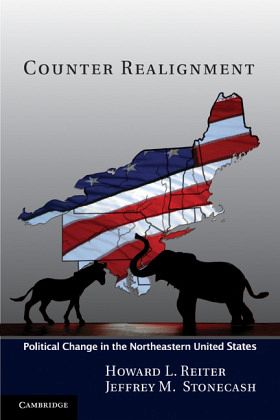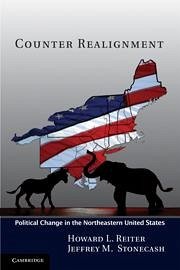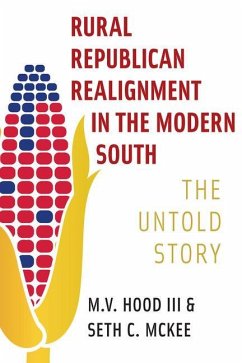
Counter Realignment
Versandkostenfrei!
Versandfertig in über 4 Wochen
31,99 €
inkl. MwSt.

PAYBACK Punkte
16 °P sammeln!
In Counter Realignment, Howard L. Reiter and Jeffrey M. Stonecash analyze data from the early 1900s to the early 2000s to explain how the Republican Party lost the northeastern United States as a region of electoral support. Although the story of how the 'Solid South' shifted from the Democratic to the Republican parties has received extensive consideration from political scientists, far less attention has been given to the erosion of support for Republicans in the Northeast. Reiter and Stonecash examine who the Republican Party lost as it repositioned itself, resulting in the shift of power i...
In Counter Realignment, Howard L. Reiter and Jeffrey M. Stonecash analyze data from the early 1900s to the early 2000s to explain how the Republican Party lost the northeastern United States as a region of electoral support. Although the story of how the 'Solid South' shifted from the Democratic to the Republican parties has received extensive consideration from political scientists, far less attention has been given to the erosion of support for Republicans in the Northeast. Reiter and Stonecash examine who the Republican Party lost as it repositioned itself, resulting in the shift of power in the Northeast from heavily Republican in 1900 to heavily Democratic in the 2000s. Political parties often seek to attract new voters and risk losing existing voters. The Northeast has changed from heavily Republican in 1900 to heavily Democratic in the 2000s. The focus is to explain how the Republican Party lost the northeastern United States as a region of electoral support.














